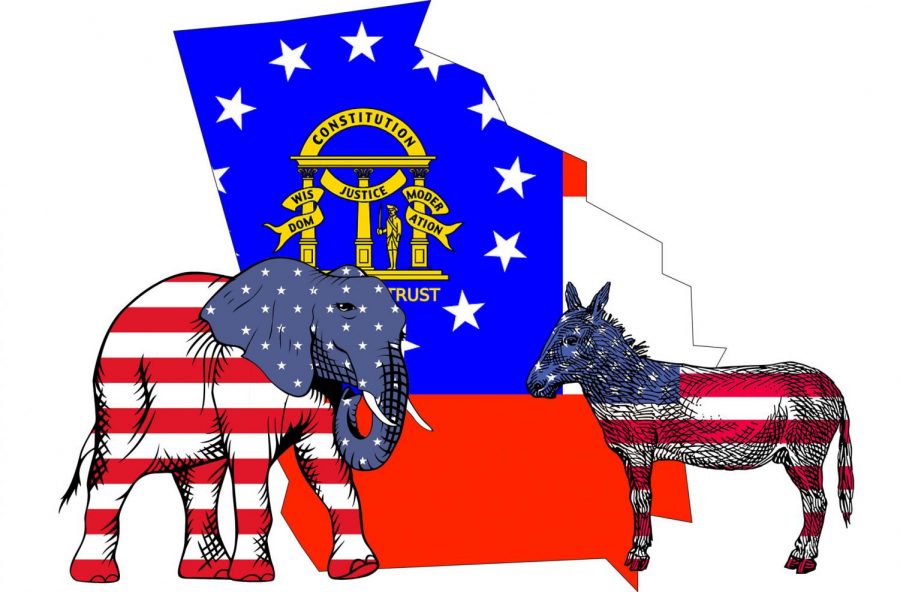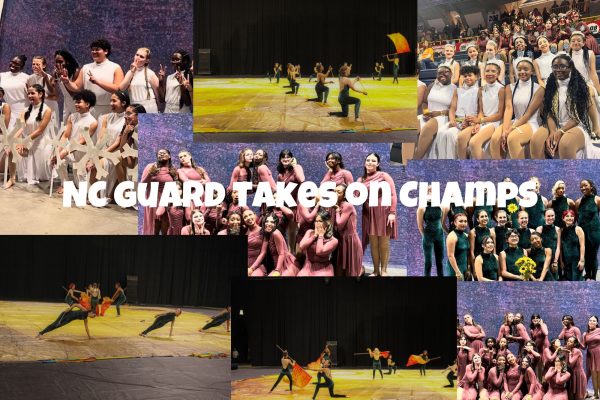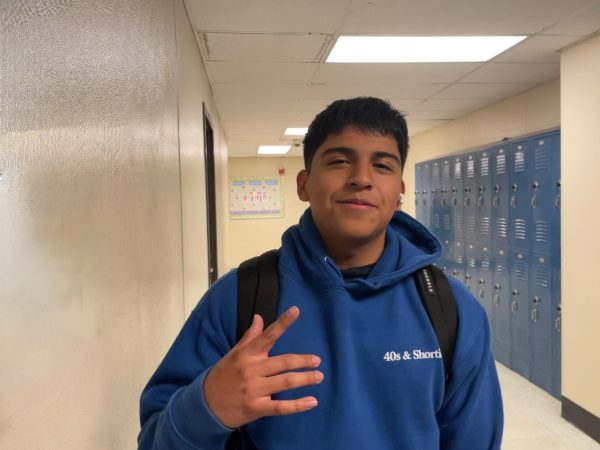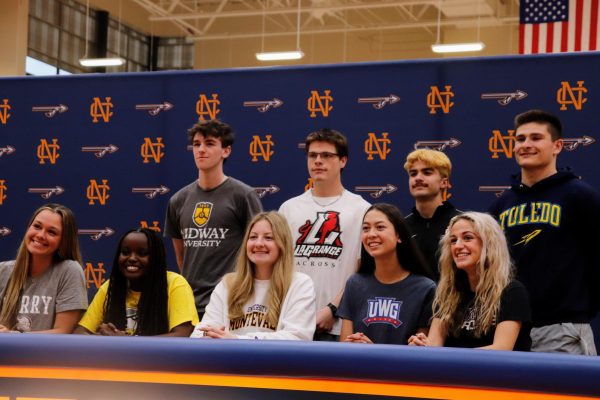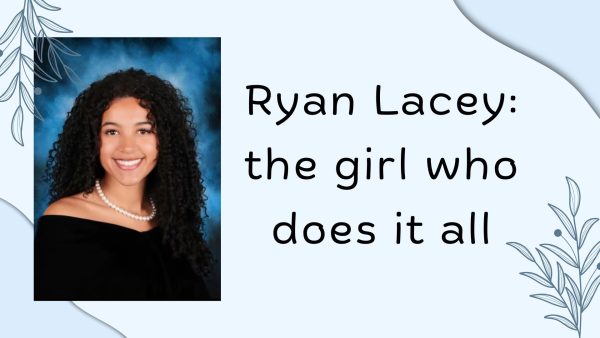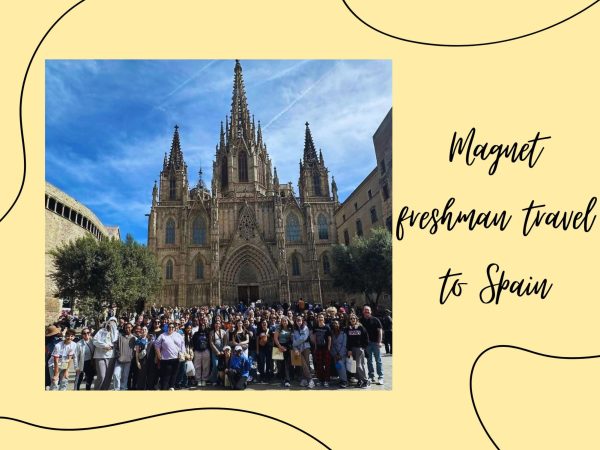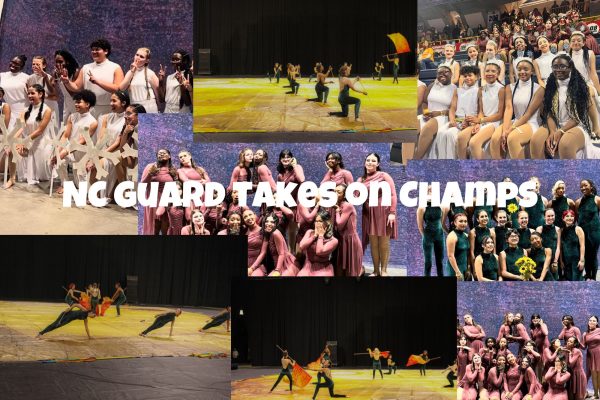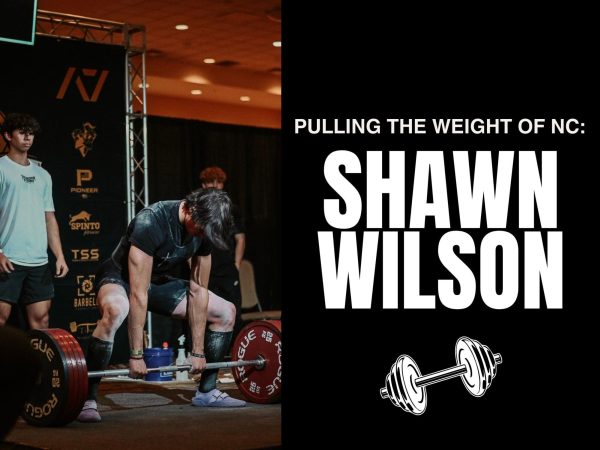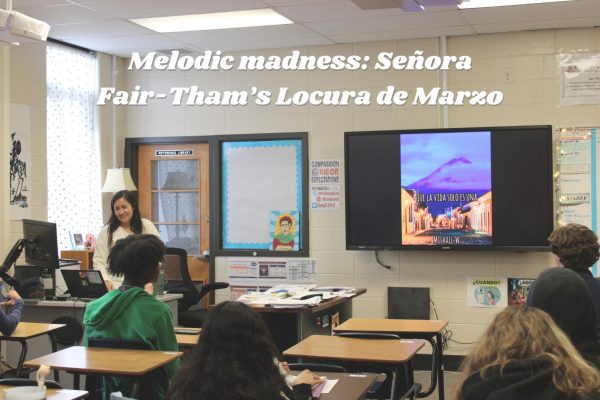The candidates for governor: Who they are and what they stand for
As the primary election approaches, Democratic and Republican candidates seek to lock down the support of their base in pursuit of the state’s highest office. The Chant provides the rundown on the candidates for governor and their viewpoints.
March 20, 2018
With Republican incumbent Nathan Deal’s term limited, the 2018 race for Governor of Georgia begins. The field, however, has solidified with time, and seven major candidates currently stand as the people most likely to take Deal’s seat in the Capitol. Republicans Casey Cagle, Brian Kemp, Hunter Hill, Michael Williams, and Clay Tippins now join Democrats Stacey Abrams and Stacey Evans as the unquestioned leaders in the race. However, few of the names in contention have achieved significant public attention prior to their candidacies, and the sea of seemingly identical backstories and positions makes the contest difficult for many to understand.
Casey Cagle: Born in Gainesville, the now-leading candidate for the Republican nomination went to Georgia Southern on a football scholarship before entering the world of business. In 1994, he became the youngest state senator in Georgia’s history, becoming Lieutenant Governor in 2005 when he scored a surprise primary victory over Religious Right activist Ralph Reed. He continues to hold that position to this day, and he quickly surged to the front of the Republican field upon entering the gubernatorial election. Pundits generally see Cagle as the candidate of the Capitol Grand Old Party (GOP) establishment; despite this record (or perhaps because of it), he has taken increasingly right-wing positions since throwing his hat into the ring, endorsing controversial “religious freedom” legislation that Nathan Deal vetoed. He also recently eliminated a key Delta tax break when the airline announced the cancellation of its discount for National Rifle Association (NRA) members. While this last stand may form an obstacle for the general election, it hurtled him even further into the lead in the primary, seemingly constituting to the Republican base a signal of his willingness to sacrifice corporate connections in the name of conservative principles.
Brian Kemp: The current Secretary of State, Kemp hails from Athens and, like Cagle, worked in business before entering politics as a state senator. He takes fairly typical Republican positions, with particular emphasis on his hardline views on illegal immigration and an interest in improving rural infrastructure. Opponents criticize his tenure as secretary of state, which includes a scandal surrounding election data made accessible to hackers and has infuriated Democrats with his focus on voter identification. While he has often come second to Cagle in polling, Kemp will need to articulate what separates him from the other Republicans in the race if he wants to win the primary.
Hunter Hill: The former Smyrna state senator earned a reputation in the legislature as an ideological conservative, and the description shows no sign of losing its accuracy in the near future. However, his ideas resemble Ted Cruz more than they do Donald Trump, and his rigid attachment to principle sometimes rankles the populist and moderate wings of his party. As of late, he has given Kemp considerable competition for the second-place spot in the primary, and grassroots right-wingers, especially within his suburban base, adore him. On the recent Delta-NRA crisis, he criticized Cagle for giving the airline a tax break in the first place, describing it as an unnecessary government intervention in the free market.
Michael Williams: The young state senator and businessman has sought to promote himself as the unapologetic Trump supporter in the race, stressing his populist credentials and Trumpian ties. However, his media appearances have generated a striking number of gaffes, and his campaign has seemed to fizzle out after a strong initial push. Opponents have criticized apparent ties to extremist groups, and his strong pro-Trump stance may alienate suburban moderates. His views may give the race a rightward lean, but he stands little chance, at least at present, of winning the primary, let alone the general election.
Clay Tippins: Despite his extensive advertising efforts, the businessman and ex-Navy SEAL remains an unknown candidate to many Republicans. He touts his non-politician status as a major plus. Apart from that quirk of background, however, he harbors little else to endear him to voters, and his views on many issues remain a cipher. He may yet become an interesting player, but for now he has failed to make much of a mark on the race.
Stacey Abrams: The leading Democratic candidate, Abrams, a Yale-educated lawyer and the former minority leader of the Georgia House of Representatives, has quickly locked up the support of the national party and progressive activists, drawing media attention from around the country. Her policies generally stand in line with the standard Democratic platform. If elected, she also stands to make history as the nation’s first black female governor, a major factor in her appeal to an energized Democratic base. However, her ties to Georgia communities and the state party seem tenuous at best to many voters, and she attracted criticisms from a number of fellow Democrats when she supported Republican-led cuts in funding for the HOPE scholarship.
Stacey Evans: The Cobb County lawyer took the consternation over HOPE and ran with it, using the issue to separate herself from competitor Abrams. She has also gained considerable support from state and local leaders, a coalition which may appeal more to general-election voters than Abrams’s national-level, often strongly left-wing backing. In general, she has run to the left of Abrams on economics and education while deemphasizing social issues. Her heavy focus on HOPE, though, makes her appear something of a single-issue candidate, and her relative lack of a media profile may constitute a significant obstacle.
The major candidates for governor reflect a wide range of backgrounds and viewpoints. Regardless of which candidate one supports, informed voter participation forms an essential component of a healthy republic. The Chant’s descriptions should not constitute the be-all and end-all of one’s interest in the gubernatorial race; despite this caveat, they hopefully will aid in understanding and forming opinions of the candidates— an important element in the political process.




